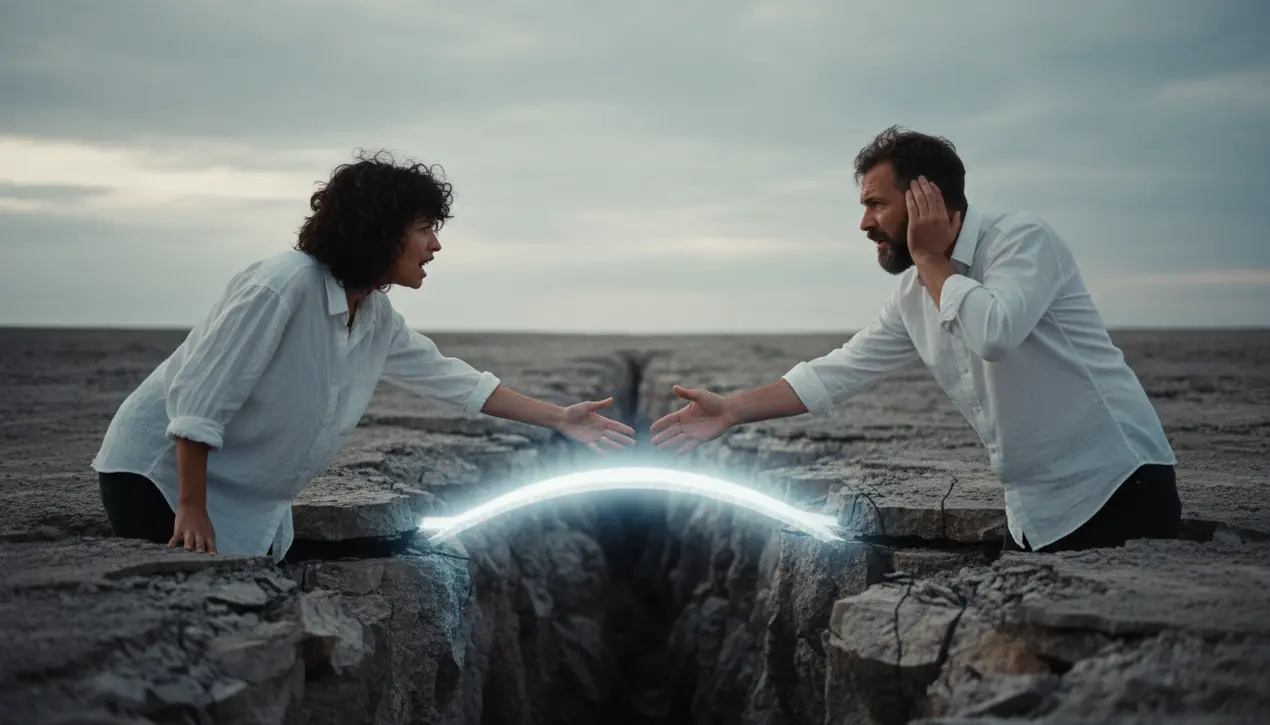
Scienceneuroscience
The Real Communication Breakdown: Why We Fail to Truly Hear Each Other
LA
Laura Bennett
15 hours ago7 min read5 comments
Two people connect, feeling a rare spark that momentarily bridges the profound gap between separate consciousnesses. Then comes the inevitable moment: they discover they're experiencing the same situation in fundamentally different ways, suddenly clinging to the edge of that chasm while arguing about whose reality is correct.What happens next determines whether relationships flourish or fracture. In 1951, as Cold War tensions threatened global destruction, pioneering psychologist Carl R.Rogers delivered a radical insight to Northwestern University's Centennial Conference on Communications. His proposition remains urgently relevant in our polarized era: communication fails not because of flawed words, but because of our fundamental inability to listen with genuine empathy.This failure reverberates through our personal relationships, workplaces, and political discourse. Through interviews with dozens of couples and colleagues about their communication struggles, I've observed a consistent pattern: we listen primarily to craft our response rather than to understand, we armor ourselves with defensiveness when feeling misunderstood, and we retreat into the fortress of our own perspective rather than building bridges.Rogers identified this as the core human dilemma—we exist in subjective isolation yet crave deep connection. His solution focused not on better speaking techniques or conflict scripts, but on cultivating what he termed 'unconditional positive regard'—that challenging, generous stance of accepting another's reality without immediate judgment or correction.Recall the last time you felt truly heard—not merely tolerated until someone could speak, but genuinely understood. This experience has become distressingly rare, yet it's the essential oxygen that relationships need to survive.Marriage counselors and organizational psychologists consistently report that the most destructive patterns emerge when people stop viewing each other as allies in understanding and begin treating disagreements as battles to be won. The consequences are devastating: potentially thriving relationships wither, collaborative opportunities turn resentful, and societies fracture into opposing camps.What Rogers understood—and what we desperately need to remember—is that true communication isn't about efficient information transfer. It's the courageous, vulnerable work of reaching across the chasm between separate minds to find common ground in our shared humanity.
#communication
#psychology
#Carl Rogers
#conflict resolution
#human relationships
#featured
Stay Informed. Act Smarter.
Get weekly highlights, major headlines, and expert insights — then put your knowledge to work in our live prediction markets.
Related News
Comments
Loading comments...
© 2025 Outpoll Service LTD. All rights reserved.